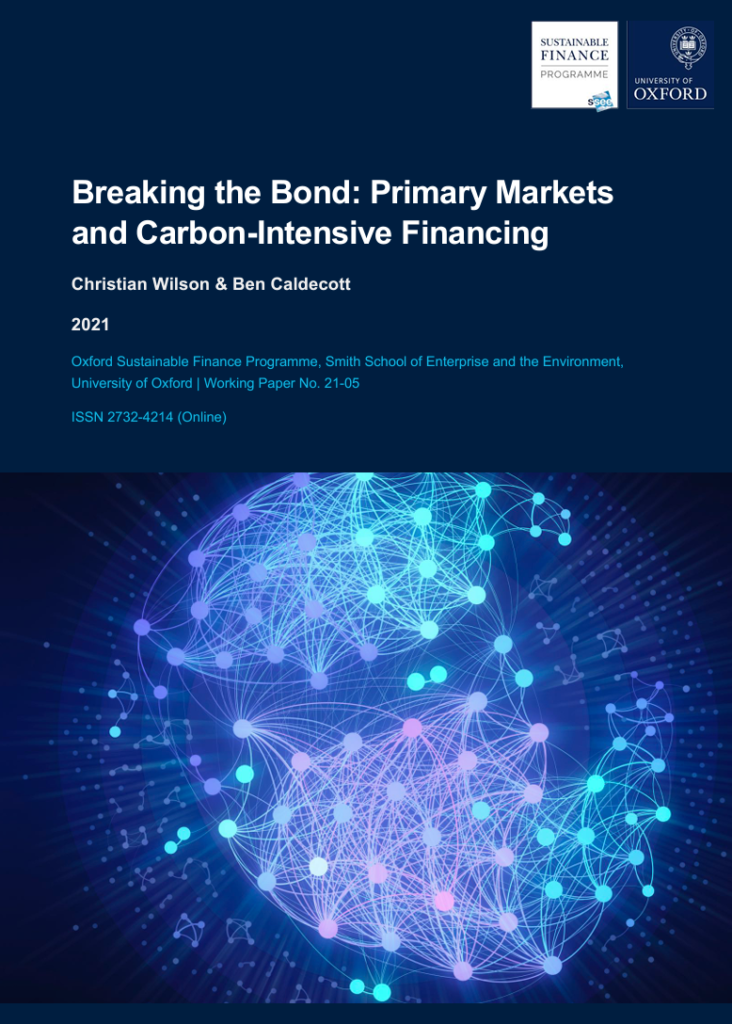Financial institutions with over $70 trillion in assets have so far pledged to achieve net zero portfolios and loan books by 2050, including meeting ambitious interim 2030 targets.
A new publication by the Oxford Sustainable Finance Programme at the University of Oxford’s Smith School of Enterprise and the Environment, reveals that passive corporate bond funds not only hold fossil fuel assets, but directly finance them by buying large quantities of new bonds issued by fossil fuel companies. The report shows that about 14 percent of the value of new bonds bought by the largest US corporate bond ETFs between 2015 and 2020 were issued by carbon-intensive companies in the oil and gas, utilities and coal mining sectors.
The Financial Times article that covered the report points out that newly issued corporate bonds are often sold at a discount to attract buyers, and ETF managers can buy newly issued bonds before they are included in an index. Purchasing the newly issued bonds, as pointed out in the Financial Times article, effectively means that the funds can gain an additional performance advantage from investing in these carbon-intensive industries.
The report recommends that as primary markets can be considered the point of maximum leverage, ETF providers serious about climate change must consider how they can align portfolio flows.
